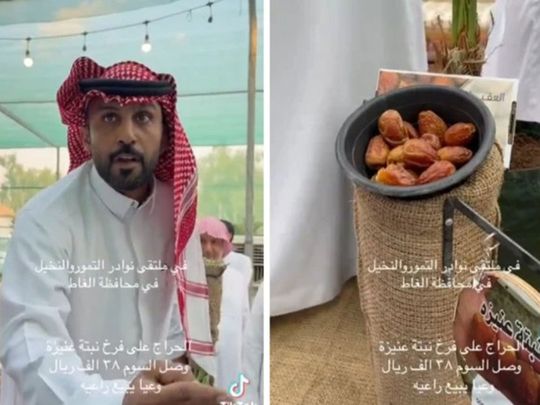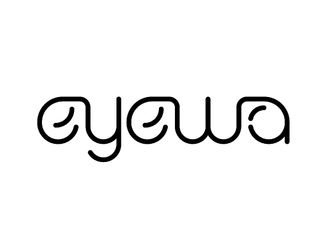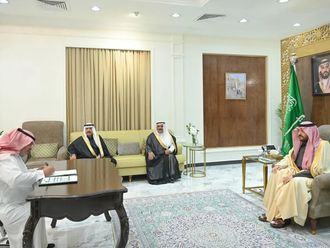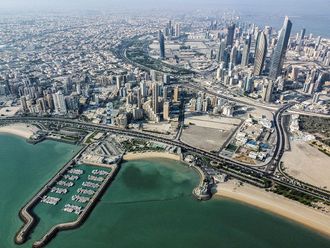
Cairo: An owner of a rare date palm sapling turned down SR38,000 that was offered as the highest price bid for the young tree at a recent auction near the capital Riyadh, according to reports.
An online video shows an auctioneer clad in the traditional Saudi outfits conducting bids at a forum for rare date palm products held in Al Ghat, a northern governorate of the Riyadh region. The sapling appears in the footage in front of a crowd of bidders and spectators.
The auction opened with an SR10,000 bid and continued until the price soared to SR38,000.
But the owner of the sapling, reportedly grown in Unaizah in central Saudi Arabia, refused to part with it. There were no immediate details about its species. Prices of ordinary palm saplings usually start at SR150, according to experts.
Dates are a widely popular product in Saudi Arabia where several festivals are traditionally held for the sweet, nourishing fruit.
Self-efficiency
The kingdom has achieved self-efficiency in dates output estimated at 1.5 million tons per year.
The exports of Saudi dates surged by 14% to reach SR1.4 billion last year to a total of 119 countries, according to the National Centre for Palms and Dates.
There are more than 33 million palm trees across the kingdom. The sector significantly contributes to several transformational industries including food, medical and cosmetic products as well as fodder.
In recent years, there has been growing interest in the kingdom in transformational industries as part of an ambitious plan to diversify oil-reliant economy.
With palm dates being a principal Saudi product, the fruit has recently been transformed into sweet, nutritious tablets proving a popular with children. Marketed in several tastes and colours, the tablets are made of ground dates powder with no artificial additives.
In January, a Saudi man disclosed in media remarks that the leaves of the ubiquitous palm trees in the homeland are now utilised to manufacture a juice rich in nutrients and patterned after the Japanese green tea Matcha.
Saud Al Quseibi, who has innovated several dates-based products, explained that the idea of the drink, dubbed “Safcha”, popped up after he had read a scientific paper highlighting the nutritious benefits of palm fonds.
The resulting juice contains protein, fibres as well as minerals, vitamins, calcium, and antioxidants, according to him. “Safcha” is an amalgamation of the words “saf”, Arabic for palm leaves, and Matcha.










